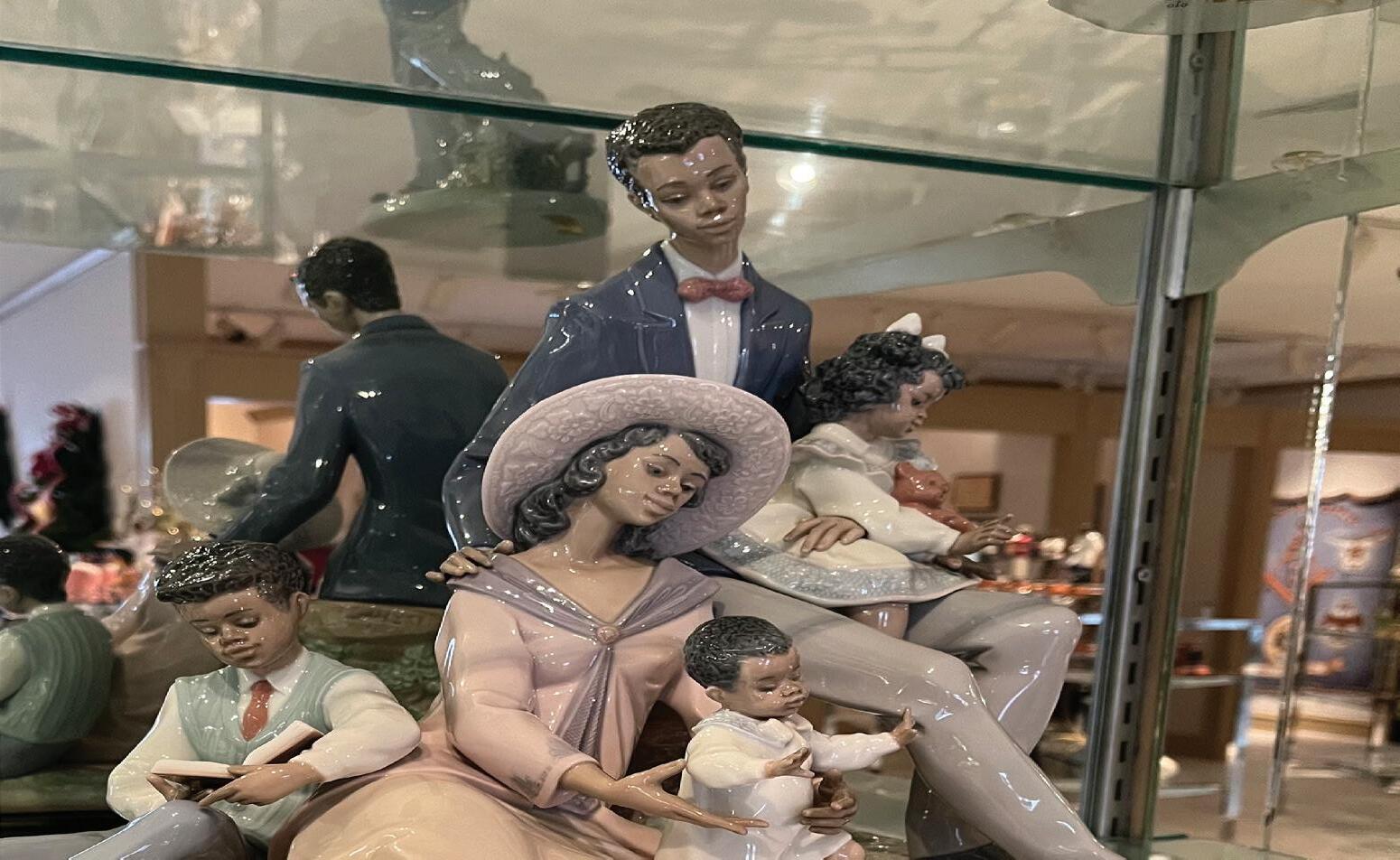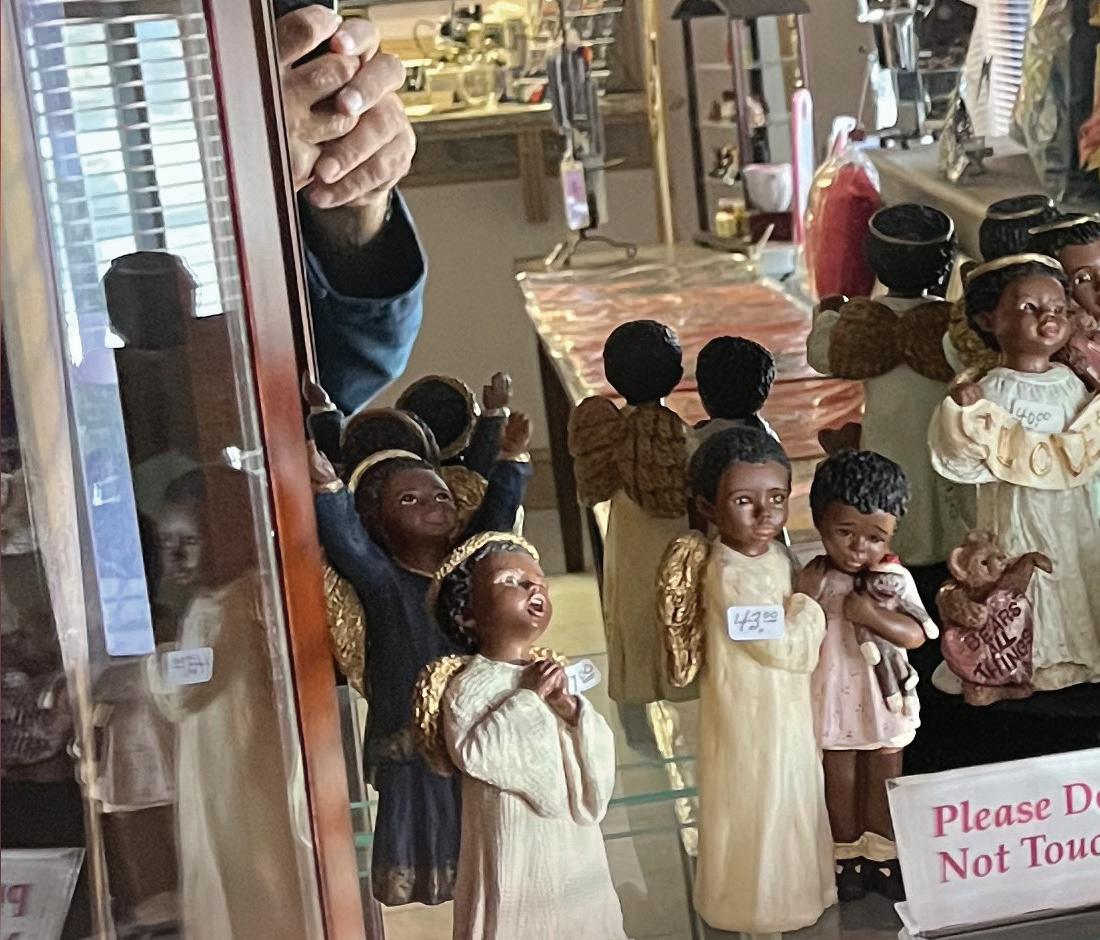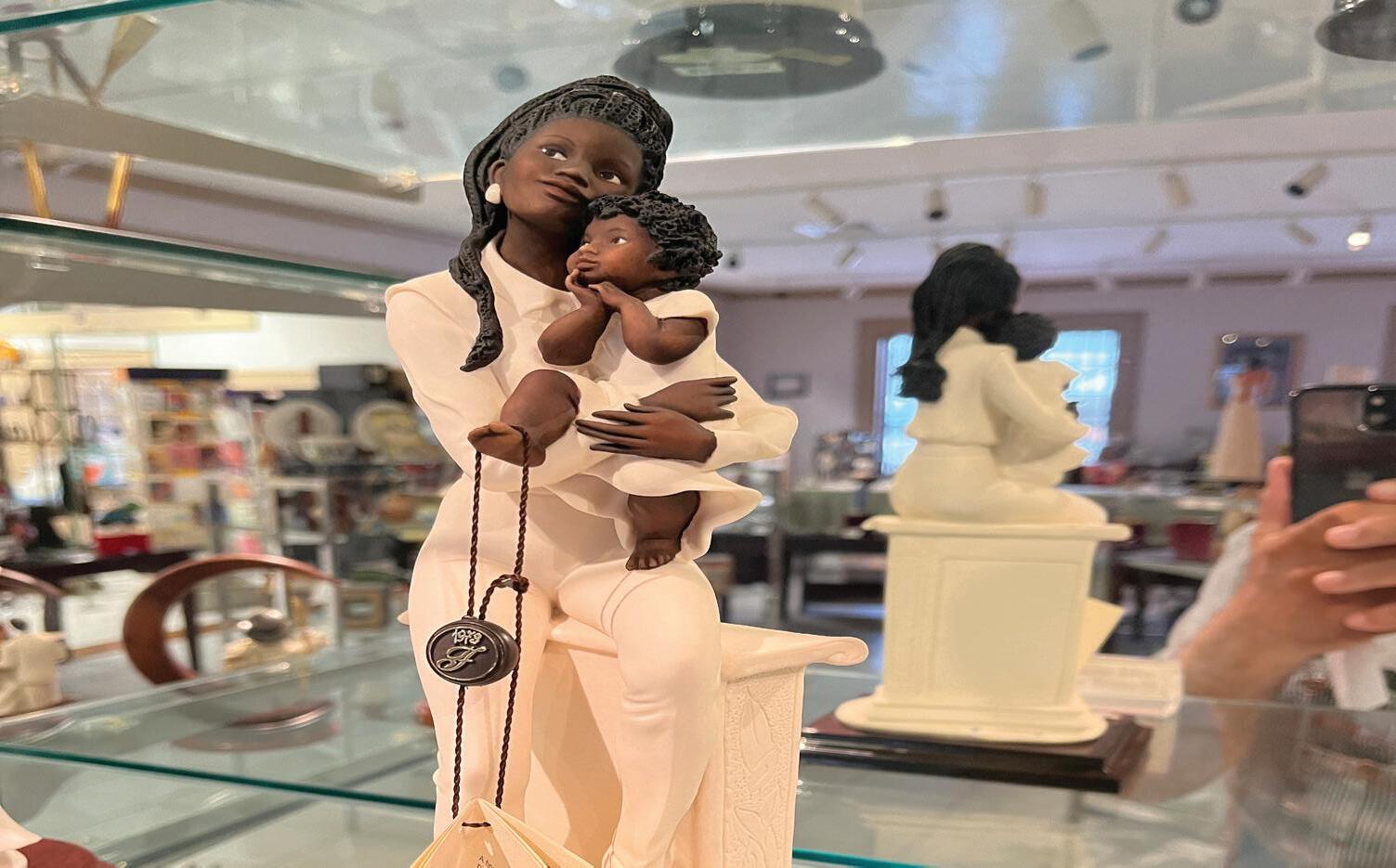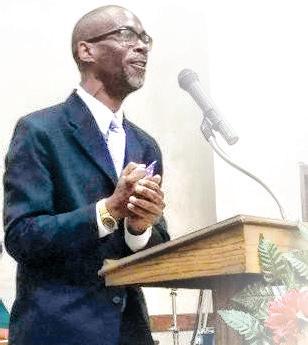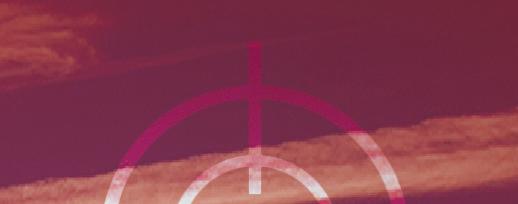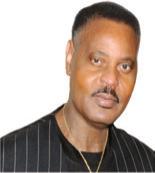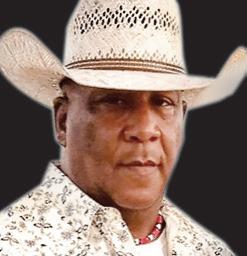

We the People We need to start holding each other accountable.






We the People We need to start holding each other accountable.



By: Natiece Ford
On November 5th, 2024, America decided that Donald J. Trump would be the 47th president of the United States. Many wonder what comes next for the country with the looming prospect of Project 2025—a set of individual policy changes that will radically restructure the executive branch. With Republicans likely to hold a majority in both the House and Senate, many of the ideas outlined in Project 2025 will likely be easier to pass.
Elon Musk, CEO of Tesla and a billionaire contributor to the Trump campaign, saw a 13% surge in his company’s shares during pre-market trading early Wednesday morning following Trump’s victory. What does this mean? Has capitalism prevailed, or is it a sign that companies now have a clearer path to follow now that the uncertainty of the election is over?
What does this mean for Black
- Roy Douglas Malonson

By Sharon C. Jenkins
In a world driven by fast-paced technological advancements and ever-changing societal norms, the life story of Dr. Bobby Mills stands as a testament to resilience, purpose, and an unwavering commitment to social justice. From his early days in South Carolina to his in uential years in Houston, Texas, Mills’ journey is a powerful narrative that re ects both personal triumphs and challenges, shedding light on his dedication to education, racial equity, and community upli ment.
roughout his journey, Dr. Bobby Mills has been supported steadfastly by his wife of 48 years, Larnita B. Mills. Larnita has been more than a partner; she has served as his helpmeet and spiritual covering, providing
Mills on pg. 5 Mountain on pg. 3

Bobby Mills, Ph.D.








Racism and sexism are powerful force motivating multipliers in American socio-economic political life.
On November 5th, 2024, most Americans chose personal perceived self-centered economic interests over the tenets of democratic collective responsibility. Reason being politics in American society has always been driven by institutional racism, male chauvinistic sexism, and socio-economic classism. Hence, we had some minority males and White females who were willing to participate in their own dehumanization.
On the other hand, multicultural democratic oriented government is constitutionally of the people, by the people, and for the people based upon a spiritually and secularly educated population of
citizens. is is the primary reason why the Founders created a mass universal public educational system. However, because of spiritual ignorance and secular-educational ignorance, America is experiencing perilous times because of the evil trinity; racism, sexism, and classism. is is why, individuals must wear the armor of God, because we are in a ght for the constitutional soul of American society as a multi-cultural democracy, and the eternal moral truths upon which it was established: “that all Men are created equal, that they are endowed by their Creator with certain unalienable Rights, that among these are Life, Liberty, and the Pursuit of Happiness--- at to secure these Rights, Governments are instituted among Men, deriving their just Powers from the Consent of the Governed”. It is easy to politically campaign and govern based upon lies. Lies only require belief. Truth requires work. erefore, if an individual is told the truth, he or she must go to work to nd out whether it is the

afraid of things that can’t be explained.”
Many people are exquisitely susceptible to spine-tingling news that is manipulated to be emotionally charged, particularly if it threatens their status, or is frequently and forcefully repeated. Reports from our own in-group, even if that consists of friends we’ve never met but strongly identify with, are more eagerly accepted and shared, particularly if it “proves” what we fervently want to be true.
Psychologist Jovan Byford is a lecturer at Open University in the United Kingdom. He teaches that conspiracy theories provoke strong emotional protection for believers. “ ey are not just about right and wrong,” he says, “but underpinned by feelings of resentment, anger and indignation over how the world works.” Since our convictions are inherently bound up in our self-image, it can be painful and frightening to poke at them. Conspiracy theories and the embrace of propaganda allow devotees a sense of superiority. ey feel they have signicant “inside
Aftermath on pg. 3 Election on pg. 3
Trump won the 2020 election. Michelle Obama is a man. FEMA is insolvent because they gave all their funding to illegal immigrants. All of these declarations are easy to recognize as fallacious. Or are they? Could they be true? Misinformation is easy for most people to disregard unless it is directed at us by a sincerely deceived coworker, friend or loved one who feels obligated to convert you. Even though such beliefs come with consequences, from social rejection to increased feelings of anxiety, Rob Brotherton, a psychologist, and author of two books on fake news reminds us that it’s human and normal to believe misinformation. “It’s a defense mechanism: we’re primed to be suspicious and

“We Africans in America have been socially engineered to reject our past, and far too many of us live in a state of suspended animation. We deny the historical realities confronting us daily. Too many of us mistakenly believe that the past has no bearing on the present and is unrelated to the future. Thus, we have been conditioned to live our lives disconnected from cultural values, principles, and ideals - essential for peaceful living.”
- Anthony T. Browder
America?
In his book, once banned in South Carolina schools, Ta-Nehisi Coates referenced the “destruction of the Black body”—the idea that Black lives are in constant danger. is is a sentiment that many Black Americans can relate to. e constant danger to Black expecting mothers, who die at exponentially higher rates than white mothers; the danger that Black men and women face when encountering police. How will the world change if there is further militarization of the police force? What happens to Black youth educated in a system that will not teach them their history at the expense of potential white guilt? Who will teach our youth their history when we ourselves do not know it? In many ways, the rhetoric that the Trump campaign ran
on—and won with—is what is most daunting. e thought that a group of people have been given a pass to be lawless with our Black bodies is troubling.
It is the duty of Black America to understand the needs of our communities and to ensure those needs are met, regardless of candidate or party. e tari s that Donald Trump has suggested will eliminate federal taxes on tip and overtime wages. ese potential tax breaks are benecial in the short term but will reduce the funds allocated to Social Security. ese are the wages that retired individuals, without 401(k)s, rely on for income a er retirement. e question for Black America is: Do we have a savings plan, or do we have funds set aside for a rainy day?
It is our job to educate ourselves, read, and understand
information” that supports their self-esteem, especially if they “do their own research.”
what is outlined in Project 2025 and to make our case. We cannot expect anyone or any institution to advocate for our needs if, rst, we do not know what those needs are, and second, if we do not organize and strategize. is is the mountain. We have climbed the mountain. We have spoken to the mountain. Now, what is the solution to make the mountain move? Know your needs and start at the local level. Attend com-
munity meetings, engage with local politicians, and assess what you may be up against in your own community. Get
to know your neighbors, form alliances, and work together toward solutions that upli us.
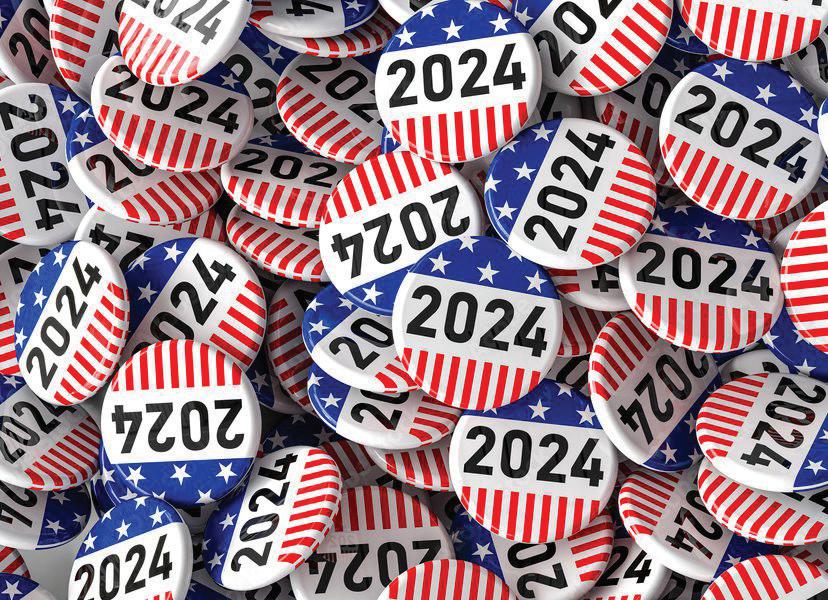
truth, because: “If ye continue in my word, then ye are my disciples indeed: and ye shall know the truth, and the truth shall make you free.” (John 8: 32). is is why, the Bible admonishes us: “Put on the whole armor of God, that ye may be able to stand against the wilds of the devil. For we wrestle not against esh and blood, but against principalities, against powers, against rulers of darkness of this world, against spiritual wickedness in high places.” (Ephesians 6: 11-12). America, when we embrace collective responsibility, we can envision the power of possibility. And we all know that with truth (GOD) all things are possible. Hence, the Democrat party must revise its national political strategy and approach on how they universalize politicking and socio-economic issues. For example, politicking based upon personal bedroom, hotel, motel sexual issues are not a winning universal political strategy, because what goes on behind closed doors should invariably remain behind closed doors. On the other hand, the right of a woman to make healthcare decisions concerning her own body is a God-given freewill human right choice.


Instead of being annoyed or alarmed, experts suggest starting from an empathetic point of connection, not correction. Resist the urgency to remedy their confusion and inspire a realization of the “truth.” Instead, use the existing shared trust with our conversational partner, along with gentle questioning (Where did you hear/read/see that? What evidence was presented? Does it seem authentic?”) a ords the opportunity to examine the notion together by considering the source of information, the motives behind it, and what other informants say about it. is promotes discussion of what you both believe and why. Exposing a faulty source’s lack of expertise or their questionable motives for spreading their distortions can help expose the purpose of their message.
e goal of these conversations should not be to change someone; it should be to gain mutual un-
Invariably racism and sexism even in the twenty- rst century are strong socio-economic variables in American culture, because the devil is a lie, and the truth is not in him. Trump and the GOP have a backward-looking philosophy and political approach to governance. America, remember God told Lot and his wife to leave Sodom and Gomorrah, and “Don’t Look Back”. Looking back longing for the exclusionary sins






14 of 26 Special Edition
1908
By: Travis McGee

Black children bring taught in a school.
No mention of racial equality or civil rights. 1912
No mention of racial equality or civilrights. 1916
No mention of racial equality or civilrights. 1920
No mention of racial equality or civilrights.
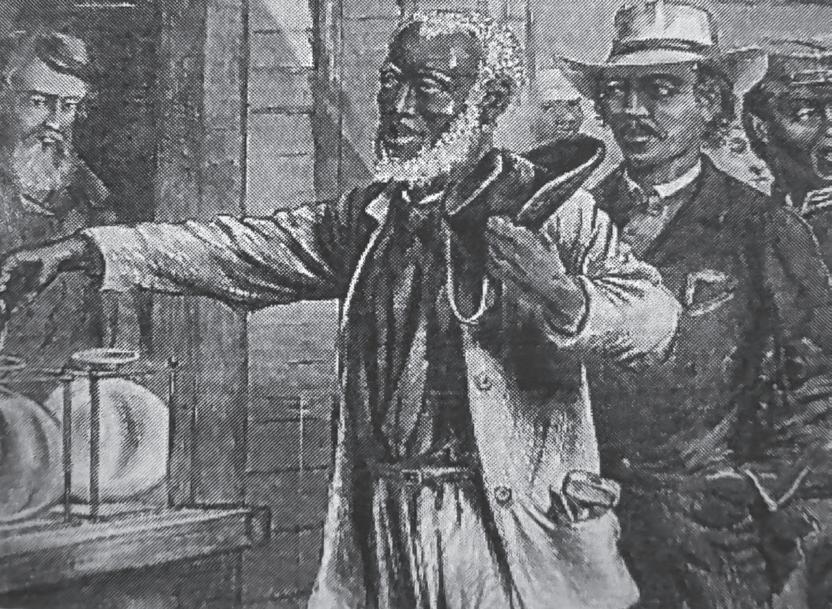
e Republican party has been for more than y years the consistent friend of the American Negro. It gave him freedom and citizenship. We demand equal justice for all men without regard to race or color; we declare once more and without reservation for the enforcement in letter and spirit of the irteenth, Fourteenth, and Fi eenth Amendments to the Constitution, which were designed for the protection and advancement of the Negro, and we condemn all devices that have for their real aim his disfranchisement for reasons of color alone as unfair, un-American, and repugnant to the supreme law of the land. †
No mention of racial equality or civilrights.
1916
No mention of racial equality or civilrights.
1920
We urge Congress to consider the most e ective means to end lynching in this country, †† which continues to be a terrible blot on our American civilization.
† See note on pp. 9 detailing the various ways that Democrats kept African Americans from voting.
†† See note on p. 15 about lynchings.
If you are reading this article the election is now over, so now what? Whether your candidate won or lost what’s your next move? Did you just go out and vote or did you “JUST VOTE” vs research and then vote to be educated on issues that matters and those that e ect you. Either way it was your vote to make count or giveaway, hopefully you made it count locally as well considering it was much more than just who will be the president on the ballot. Every election you have a chance to research and then vote for your best interest whatever that may be. You even had voting options such as early voting, mail in ballots, voting in person, curbside, and etc. ere are too many options for any excuses. Whether you are Democrat or Republican you basically have the same time frame to vote, however how you voted or who you voted for was totally up to you. With all the time you had before election you should already know who and what you were voting for before you get to the polls and etc., why be bombarded with all kind of literature, I’m going to do speeches, and lies at the last-minute vs researching and nding out FACTS for yourself. We all should know by now that a mouth and a push card can say anything but a candidate’s actual resume, actions, and track record show and proves everything. Millions turned out to vote during early voting and millions more will turn out on election day, but those same millions of voters must
be willing to hold whoever accountable regardless of race or political party. e constitution says “We the People” which should include ALL people you would think. e White House is over 1,400 miles away, but your house is within the city and county limits meaning local elections are just as important because, they a ect you immediately on a daily basis. We have to be just as passionate about our local government elections whether City, County, State, HISD, and etc. You know the ones we pay a lot of taxes to. Remember all politics and change start locally. If its 365 days in a year we can’t a ord to only get involved every 4 years.
So, a er months of name calling, fact nding, political speeches, lies and etc. from both sides, I ask what’s your next move? Will you hold yourself accountable by holding your newly sworn in ELECTED EMPLOYEES accountable or will you choose to get absolutely nothing in return for your priceless vote. Just know that politicians should always be ELECTED and never SELECTED, but that’s totally up to you and the research you choose to or not to do. “Our lives begin to end he day we become silent about things that matter.”

—Dr. Martin Luther King Jr. We been both silent and uninvolved for too long. If everybody does something, everything will get done. 1908

By: Natiece Ford
“Society suddenly nds itself put back into a state of momentary barbarism; it appears as if a famine, a universal war of devastation, had cut o the supply of every means of subsistence… there is too much civilization, too much means of subsistence, too much industry, too much commerce.”
e capitalism of America is unsustainable, and we, the consumers, are to blame. 19th-century German philosopher Karl Marx theorized what is taking place in this country, and it is as if Americans have not noticed or are too afraid to say what needs to be said out of fear of retribution. In his Communist Manifesto, Karl Marx alludes to the machine—the very machine that dockworkers on the East Coast went on strike against. Capitalism and overconsumption are to blame for the numerous recalls being issued within the food industry; we cannot keep up. e need to accumulate capital at such a rapid pace is the foundation of this nation. Capitalism is the reason that slavery and critical race theory are
Mills Cont.
unwavering encouragement and strength as he pursued his career and numerous community endeavors. Her support has been a cornerstone of his work, enabling him to focus on his mission to promote equity, justice, and integrity without losing sight of their shared spiritual vision. Together, they have built a legacy of commitment to family, faith, and the betterment of their community.
A Formative Upbringing in the South Dr. Mills was born and raised in South Carolina’s Piedmont area, a rural setting where he experienced rsthand the
hardships and inequities of a segregated America. e community, while close-knit, was marked by racial and economic divides, impacting his family’s farming livelihood. Mills recounts stories of watching his grandparents face exploitation, noting how, despite their hard work, they were cheated by a system stacked against them. is early exposure to injustice ignited a sense of purpose within Mills, and with his grandmother’s encouragement, he set his sights on a college education as a path to a better life. Driven by his family’s legacy of hard work and a vision for a fairer society, he became the rst in his
being erased from textbooks and curricula around the country, not because it causes white students to feel ashamed about their race, but because it provokes thought. Slavery was not about race; it was a byproduct of capitalism, the need for a workforce to keep up with the marketability and demand of King Cotton. e emancipation of slaves was not a humanitarian e ort; emancipation’s purpose was to hurt the pocketbook of the South. When one begins to study the concept of slavery and what the purpose of the institution was, one realizes that the slaves of old are, in essence, the slaves of new—the working class. Politicians do not attempt to gain the vote or trust of the working class, but of the middle class, the “bourgeoisie” of Marx, the consumers that drive industry.


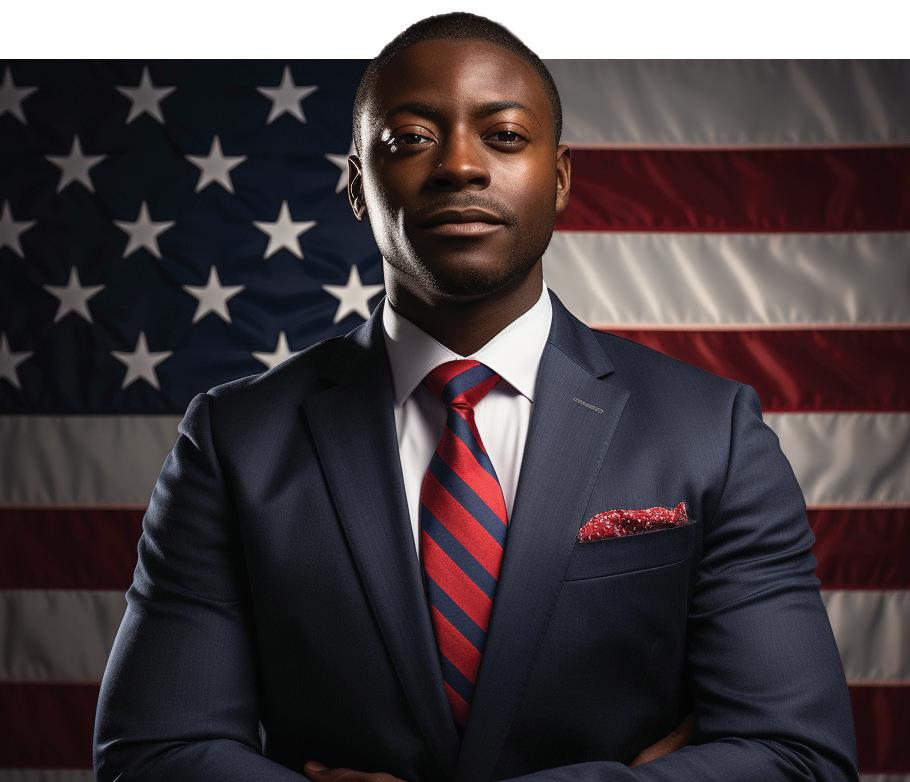
family to attend college, eventually earning four degrees without the aid of student loans.
Pursuit of Knowledge and Spiritual Foundation
His academic journey began at Scotia Seminary, a historically Black college in North Carolina. Mills’ foundational years were marked by an immersion in a disciplined, religiously-centered environment that shaped his ethical and spiritual outlook. His education at Scotia Seminary, which was deeply rooted in Presbyterian values, provided him with not only academic knowledge but a sense of community service and a commitment to moral integrity. It was here that
he cultivated the values that would guide him throughout his career. Mills’ theological studies at Colgate Rochester Crozer Divinity School further shaped his worldview, integrating theological perspectives with a social consciousness that would later in uence his teachings in sociology.
Transition to Houston: A New Beginning In 1977, Mills made the move to Houston from Chicago, where he had been teaching sociology at Governor State University. As an academic trained at predominantly White institutions, including Syracuse University, where he earned his Ph.D., Mills found a signi cant cultural shi
when he arrived in Houston. He joined Texas Southern University (TSU), a historically Black university, where he aimed to use his position to drive positive change. However, he was met with challenges in navigating the administrative culture he found selfserving and disconnected from the needs of the surrounding Black community.
Mills observed a stark contrast between the university’s potential for community impact and the limited institutional support for its Black student body. is disconnect served as a catalyst for Mills, spurring
him to work toward a university-community collaboration that would nurture the community beyond the campus walls.
Championing Equity and Social Justice


Dr. Mills has spent decades working to promote racial equity and social justice in Houston. roughout his career, he has observed that despite Houston’s ethnic diversity, there remains a deeply ingrained self-centeredness within some sectors of the city’s leadership. Mills attributes part of this to a lack of shared vision among community

